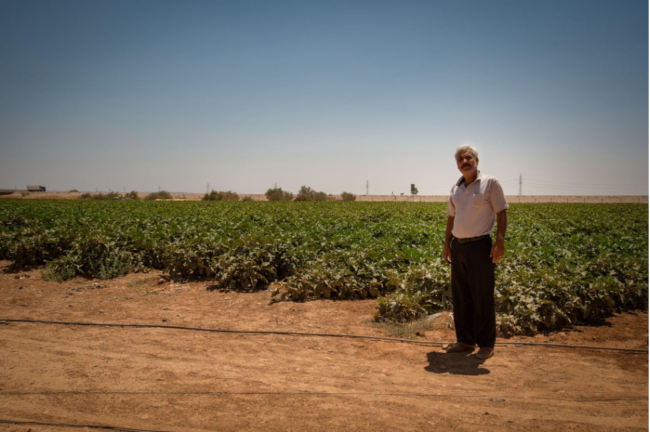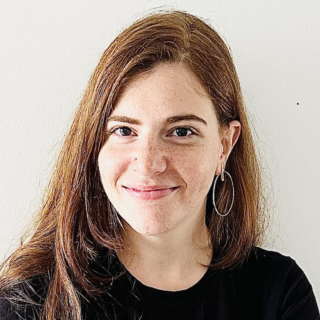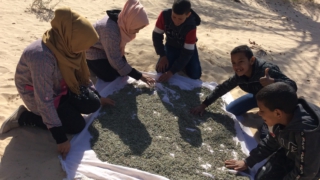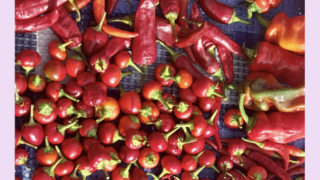Dutch-MENA Knowledge Exchange: The Everlasting Need for Sustainable Partnerships Towards a Green Future
In recent years Dutch knowledge institutions have been increasingly collaborating with partners across the Middle East and North Africa (MENA) region in an effort to tackle shared environmental concerns. In a recent online talk organized by the Green MENA Network, experts Wassim Beaineh, Manager of International Cooperation MENA at Wageningen University & Research (WUR) and Khaled Sa’ad, Senior Expert of Wastewater Management for the MENA-region at Waternet shared insights over the effectiveness, relevance and long-term impacts of these partnerships.
To ensure the sustainability of the partnership between Dutch institutions and their MENA counterpart, the talk highlighted the necessity of rethinking conventional knowledge systems, finding a harmonious balance between foreign aid and trade agendas, ensuring long-term project success, and cultivating a profound understanding of local cultural dynamics.
Decolonizing Knowledge Exchange
Dutch institutions have a long-standing position for innovation in agriculture and water management. Nonetheless in order to ensure the sustainability and effectiveness of implemented projects in partner countries, local partners need to be actively involved and local problem-solving approaches to be introduced.
How do they ensure that their expertise is relevant to the MENA region? Wassim Beaineh asserts that co-creation is the answer. “Not only do we bring knowledge onto the table, but we also learn locally from the farmers about their issues. And we try to tailor the interventions to be more effective and culturally relevant for them,” said Beaineh. He emphasized the importance of having context-specific knowledge and solutions that reflect the social, economic and environmental realities.
For WUR, a detailed Multi-Stakeholder Platform (MSP) is routinely used to ensure a wide range of stakeholders—governments, local communities, civil society, and private sector partners—are included to co-create context-specific solutions. One important project that reflects on this need to localize knowledge is the Wageningen Water Productivity Improvement program, which addresses water scarcity in Egypt and Jordan by exploring ways of optimizing agricultural water use in these two countries that rely heavily on water-intensive crops. The project, like many of its kind, utilizes the MSP to include farmers, researchers, civil society actors and governmental officials to ensure that solutions are scientifically robust and locally applicable.
Echoed by Khaled Sa’ad who similarly emphasized the need to work with on-the-ground actors, “We are working together with our colleagues on the work floor, in the field, bringing our knowledge, but also gaining knowledge from our colleagues and partner companies”, said Sa’ad. This mindset was part of Waternet’s WaterWorX, a series of wastewater treatment projects in Palestine. Within WaterNet’s Blue Deal partnership with the Palestinian Water Authority, Sa’ad collaborates with the newly established water company in the North Hebron region. Rather than implementing ready-made solutions, Waternet worked closely with local engineers and community leaders to design and implement the BluElephant, a decentralized mobile wastewater treatment plants.
By deconstructing the Eurocentric framework that currently shapes knowledge export related to sustainability goals, the way can be paved for a more inclusive and context-sensitive approach that empowers local stakeholders and fosters genuine collaboration.
Aid and Trade: Importance of striking a balanced approach
In recent years, Dutch policy has sought to integrate its aid with trade missions in the MENA region. Resulting in social innovation partnerships for environmental challenges in several countries to support the development of the country while opening new markets for Dutch companies. With such ambitions, there needs to be adequate reform that ensures financial sustainability whilst maintaining sustainability goals.
Referring back to WUR’s development of the MSP approach, a financial sustainability model is also incorporated. This model ensures that projects are not reliant solely on external funding or aid but are supported by private sector investments and local ownership. One standout example is the Morocco-Netherlands Center of Excellence in Horticulture, led by WUR, representing a collaboration that integrates advanced Dutch technologies with local agricultural practices. By involving Moroccan private sectors alongside Dutch companies, they created a financially sustainable model and allowed for the export of cutting-edge technologies such as automated greenhouses.
Similarly Sa’ad pointed out that this aid-and-trade model has opened doors for Dutch expertise in water management. Waternet’s collaboration with the Yarmouk Water Company in Jordan is a notable example, where Dutch funding was combined with local expertise to develop an asset management system for the city of Irbid’s sewer network. This system not only improved infrastructure but also created long-term financial stability by equipping local teams with the knowledge to maintain and operate the system autonomously.
Nonetheless, to create a more balanced relationship between aid and trade, a cautious approach to ensuring engagement from MENA partners is essential. Sa’ad highlights a recurring pattern in which MENA-based stakeholders adopt a passive stance, waiting for Dutch institutions to take the lead on initiatives. This dynamic not only restricts equitable knowledge exchange but also underscores the urgent need to foster active participation from local partners.
In this context, Beaineh emphasizes the importance of open communication channels. He notes that stakeholders can connect through various avenues—whether via the embassy, the agricultural council, or directly. He encourages interested parties to reach out to him and his colleagues, pointing out that all contact information is readily available on their website.

Measuring Success Beyond Immediate Outcomes
Moreover, in order to ensure that the projects are there to stay, there needs to be a focus on long-term success once the project has been launched. One of the ways this can be achieved is local ownership.
Sa’ad for one argues that success is achieved when local partners operate autonomously in managing the projects. For Sa’ad, Waternet’s goal is for the region to be self-sufficient. “Success is when our partners operate autonomously, managing their water resources sustainably and without our direct involvement”.
Echoed by Beaineh, he also highlights the role of capacity building and empowerment to project owners is one method of ensuring success. Stressing on the aim to ensure that local institutions have the capacity to handle everything from strategic long-term management to daily operations. For Wageningen this happens through proper training of local professionals to adapt and innovate, a cycle of independence should therefore be created.
This is even of more importance due to the bureaucratic hurdles that can be faced in implementing partners. This is also coupled with changing political structure and priorities in the both the MENA region and Netherlands having an impact on the cooperation in the future and potentially influencing international cooperation
Prioritizing Local Cultural Understanding
For the MENA region, operating within the cultural context is of paramount importance. This includes building trust and fostering strong internal relationships that are crucial for the success of externally funded projects.
According to Sa’ad, adopting the right cultural mindset is essential, particularly by prioritizing personal relationships with partners. He emphasizes leveraging the expertise of Dutch colleagues with MENA origins, as their familiarity with both regions can greatly facilitate communication. “You have to work long-term and try to understand each other,” Sa’ad explains. Patience, an investment in personal relationships, and an understanding of the region’s hierarchical mentality are key elements for success.
Beaineh notes that in the MENA region, personal connections can often carry more weight than formal agreements. This highlights the need for Dutch stakeholders to adopt a culturally sensitive approach. Beaineh adds that trust and personal rapport are vital for the success of projects, and these cannot be established through contracts alone. “We need to establish good relations by talking with each other informally and formally,” he explains.
Ultimately, for meaningful collaboration and sustainable impact, it is essential that Dutch stakeholders are aware of the cultural dynamics of the MENA region. By prioritizing interpersonal connections and cultural understanding, both sides can create a foundation for successful partnerships that transcend mere contractual obligations.
Watch the online session on our Youtube channel.
Share this post via


